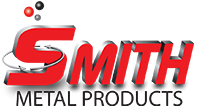Introduction To MIM Molding
Comparing MIM with Other Technologies
Plastic Components: Although MIM traces to plastic molding, it is significantly different in materials, markets, and properties. A large difference between MIM and plastic molding relate to the properties; metals are conductive, magnetic, strong, stiff, tough, chemically resistant, and can operate at temperatures far over the melting range of most polymers. For example, the useful strength of polyethylene formed by plastic molding is less than 20 MPa (3 ksi), while MIM steels are stronger by a factor of 20 to 100. Only fiber reinforced specialty polymer systems (such as Kevlar-epoxy) compete at these property levels (at high costs). Although both technologies seem similar, the engineering properties possible by MIM are outside the reach of plastics. However, metals are higher in density when compared to plastics. For Medical Applications, MIM parts can withstand an unlimited number of Autoclave sterilization cycles. Engineering grade plastics eventually de-grade or breakdown. In some applications this can make MIM parts re-usable rather than producing disposable plastic components.
Machined Components: Metal components have each feature machined into the parts, each feature adds time and cost to the part price. Excess material is left in the parts rather than adding high cost machine and machinist’s time to remove it making parts unnecessarily heavy. MIM parts can have many features incorporated into the tooling and excess material is cored out, saving manufacturing time, material, and money in the final component cost. MIM parts can typically meet ±0.5% of nominal dimensions down to ±0.0015″ or 0.38 mm, but if all the dimensional requirements cannot be maintained in MIM parts some critical features can be finish machined to take full advantage of BOTH technologies and keep part weight and cost to a minimum.
Cast Components: Lower density, dimensional control, and properties, often require finish machining…
Other Powder Metal Technologies: Only capable of producing 2D features, requires finish machining for most features, lower density, dimensional control, and properties…
